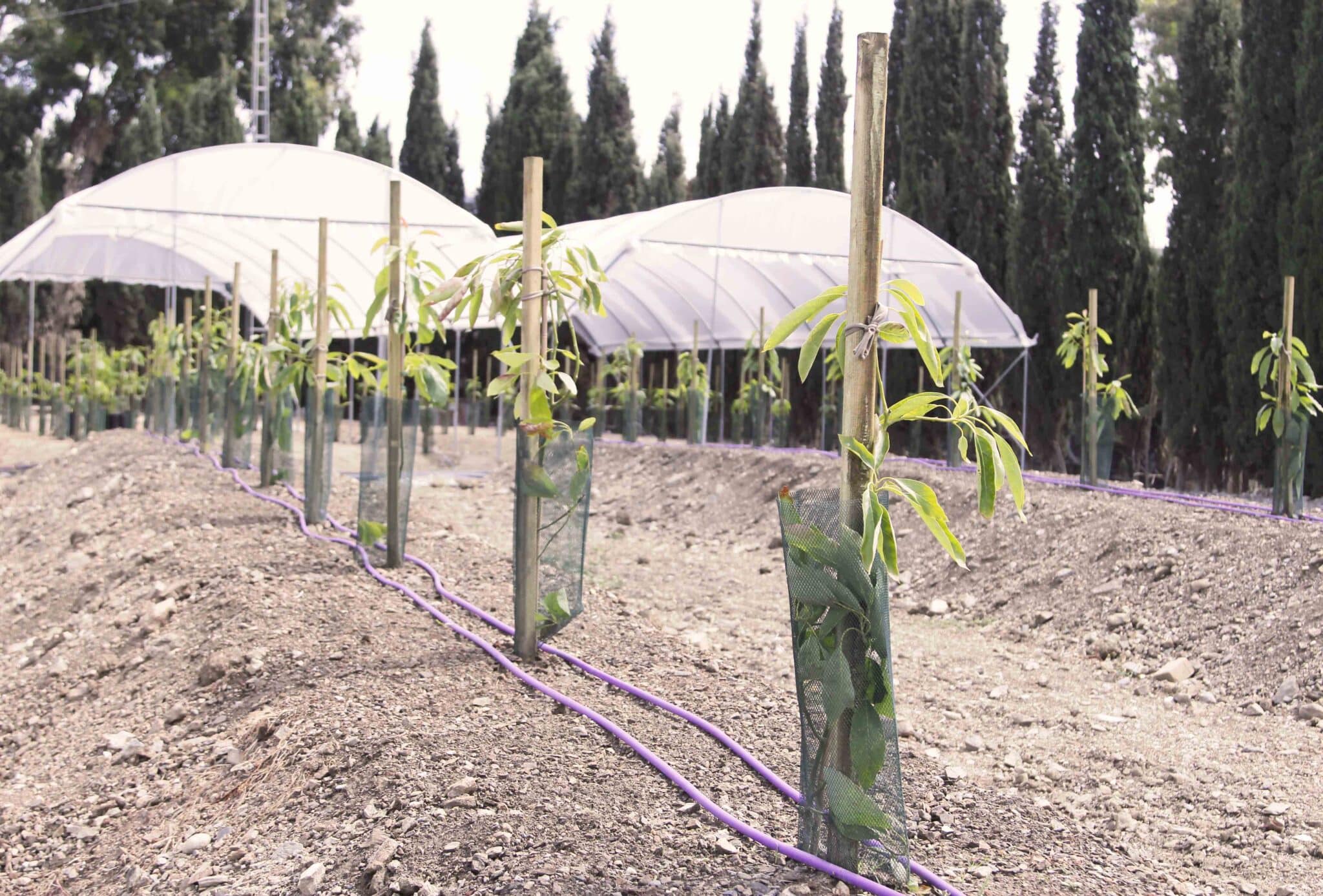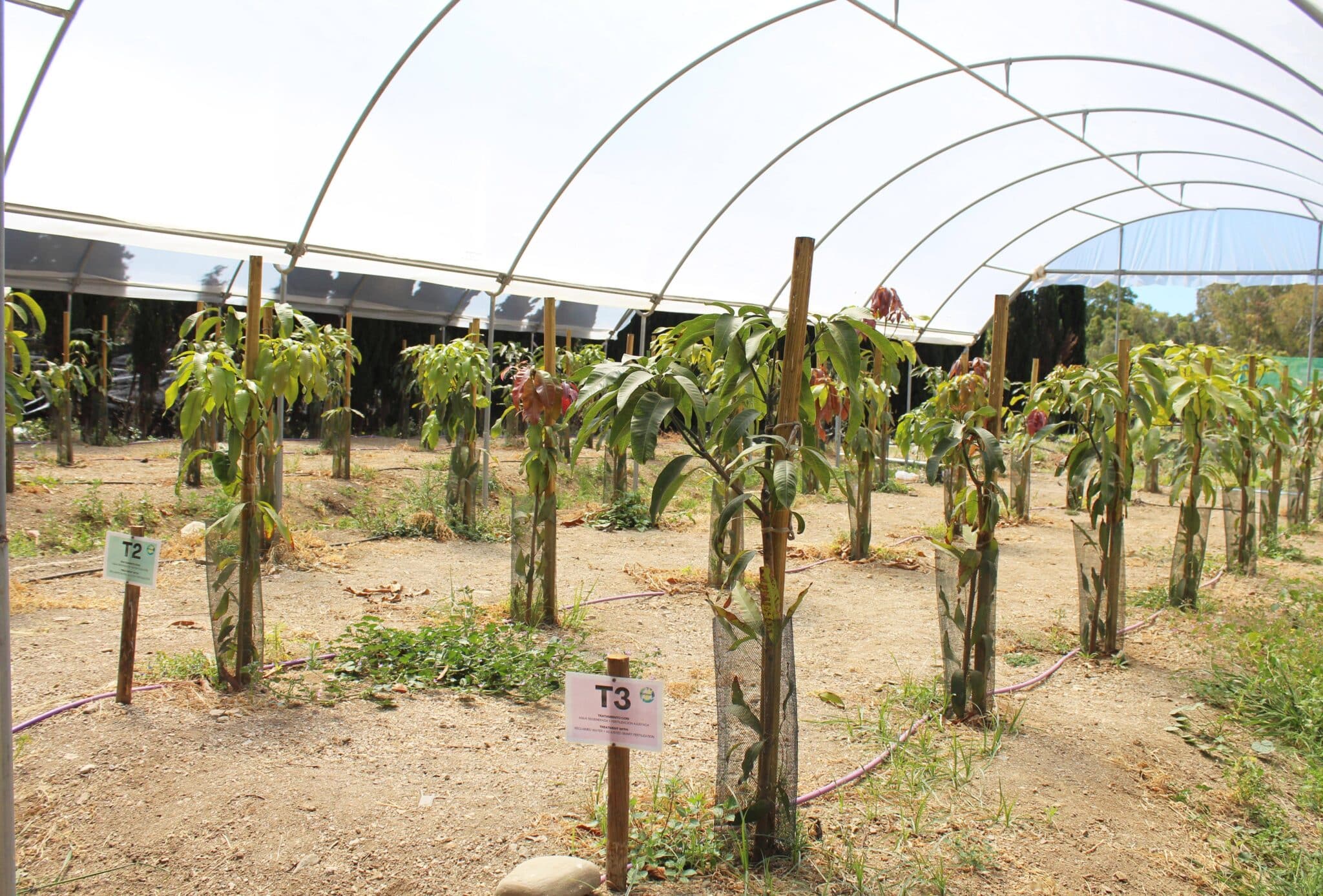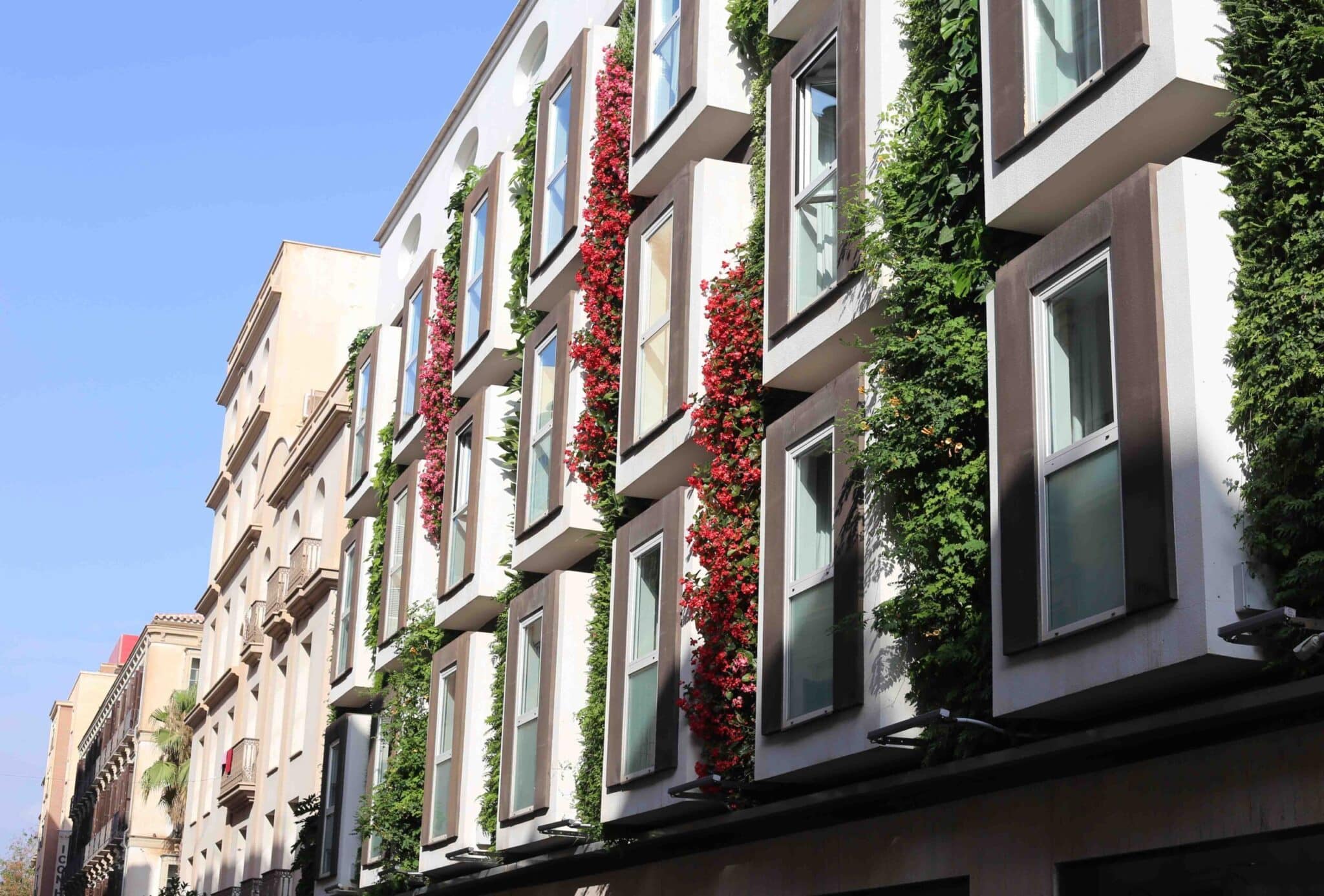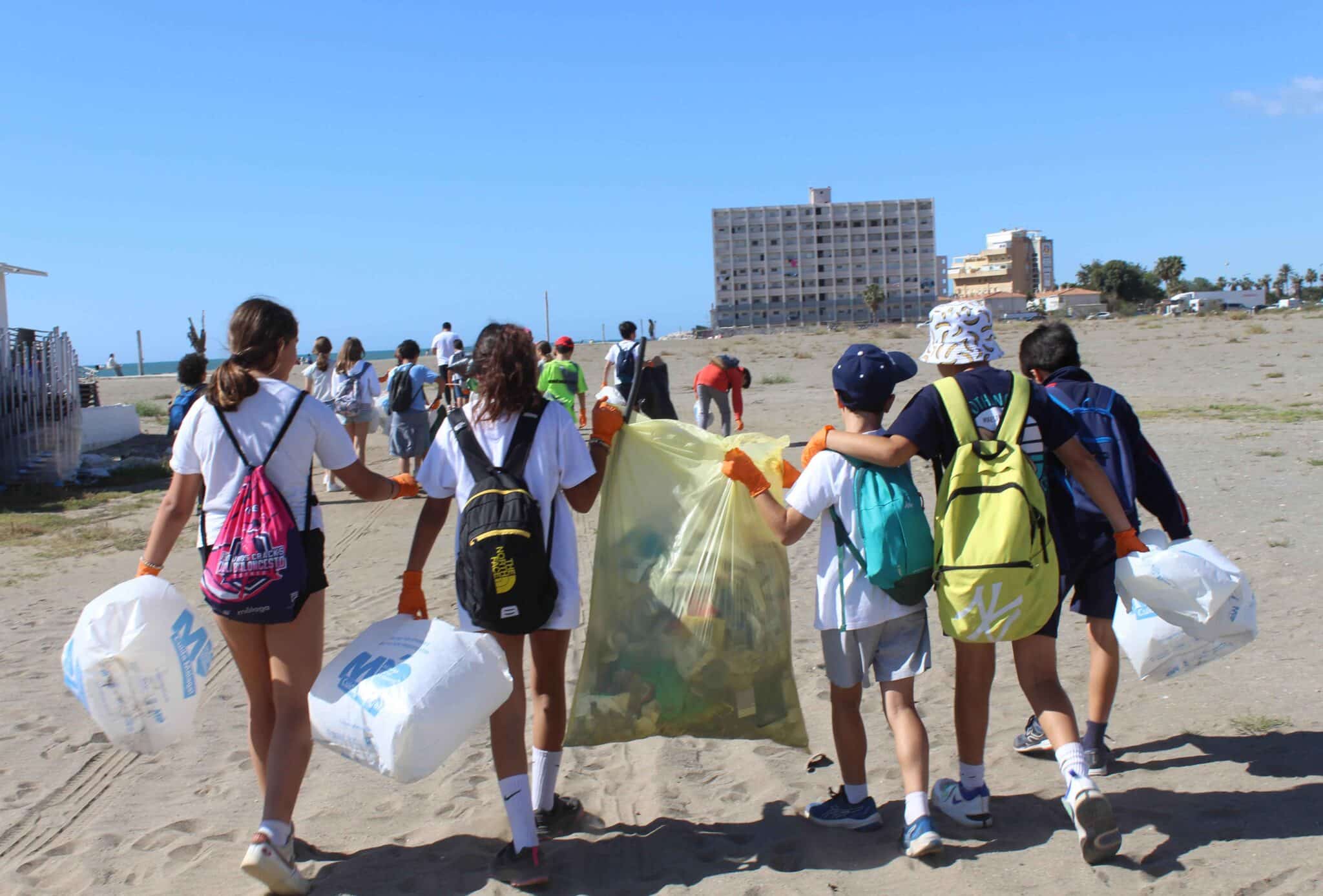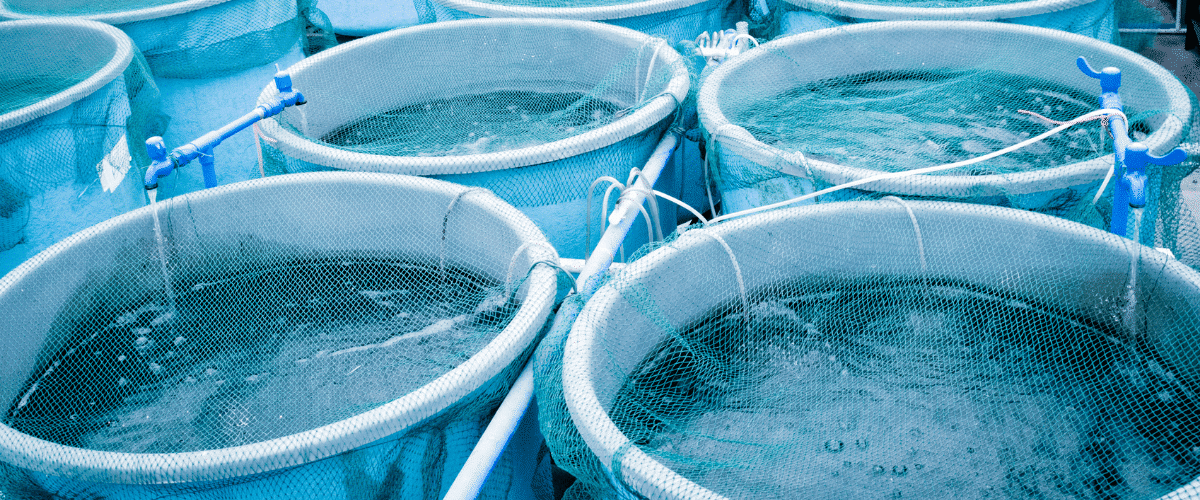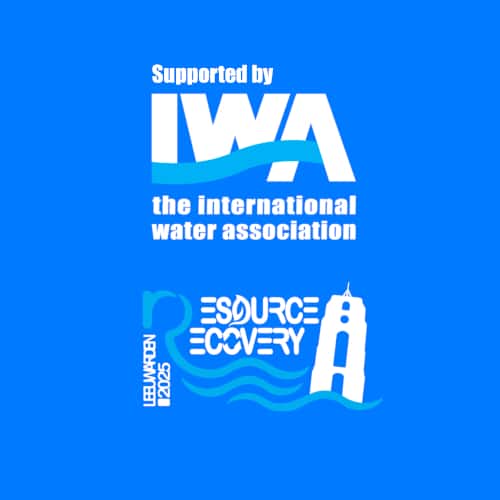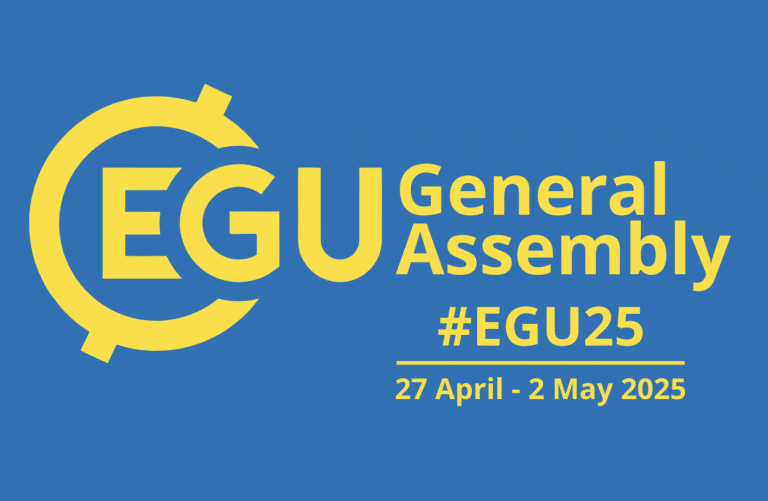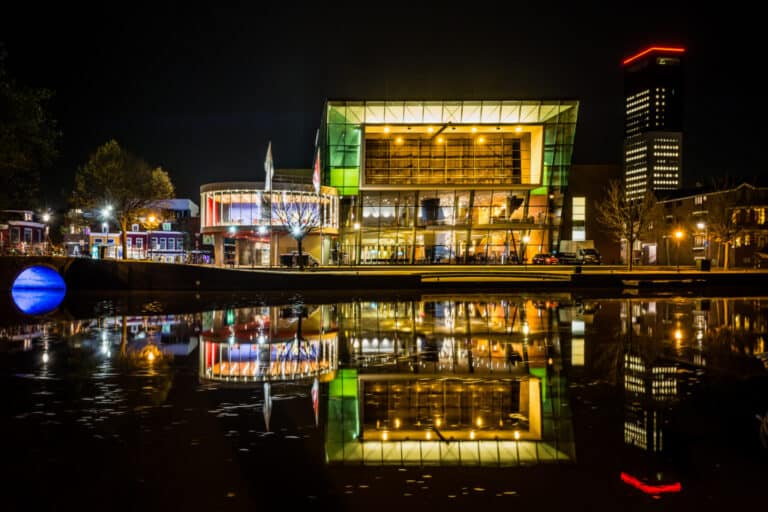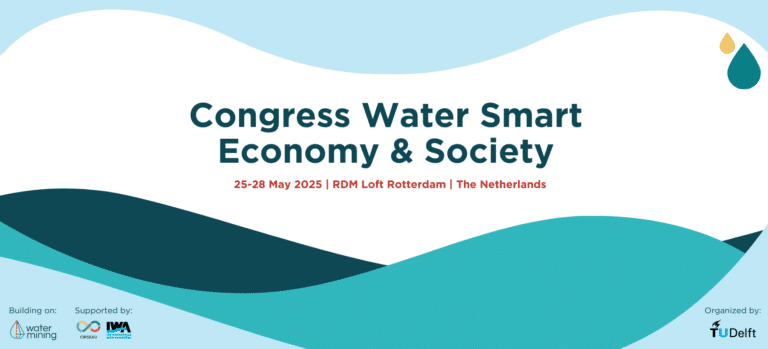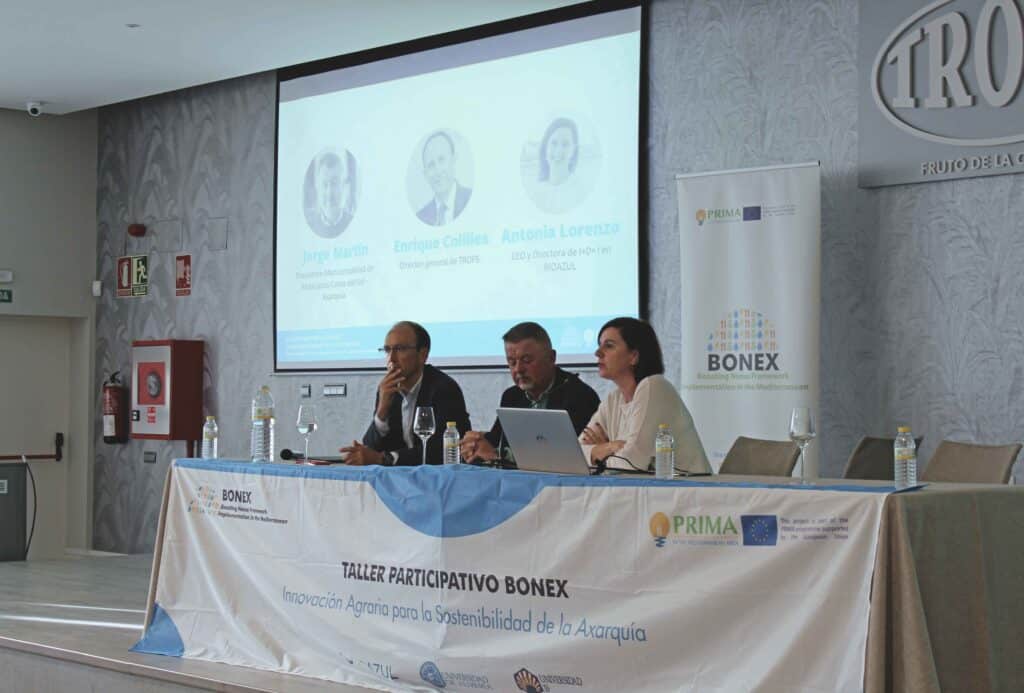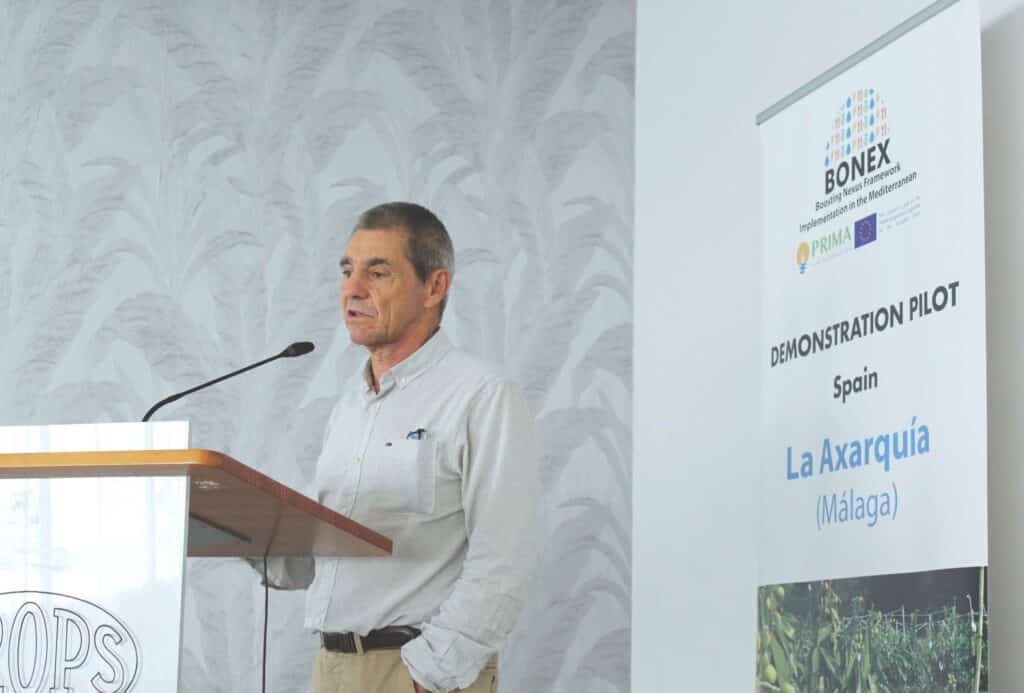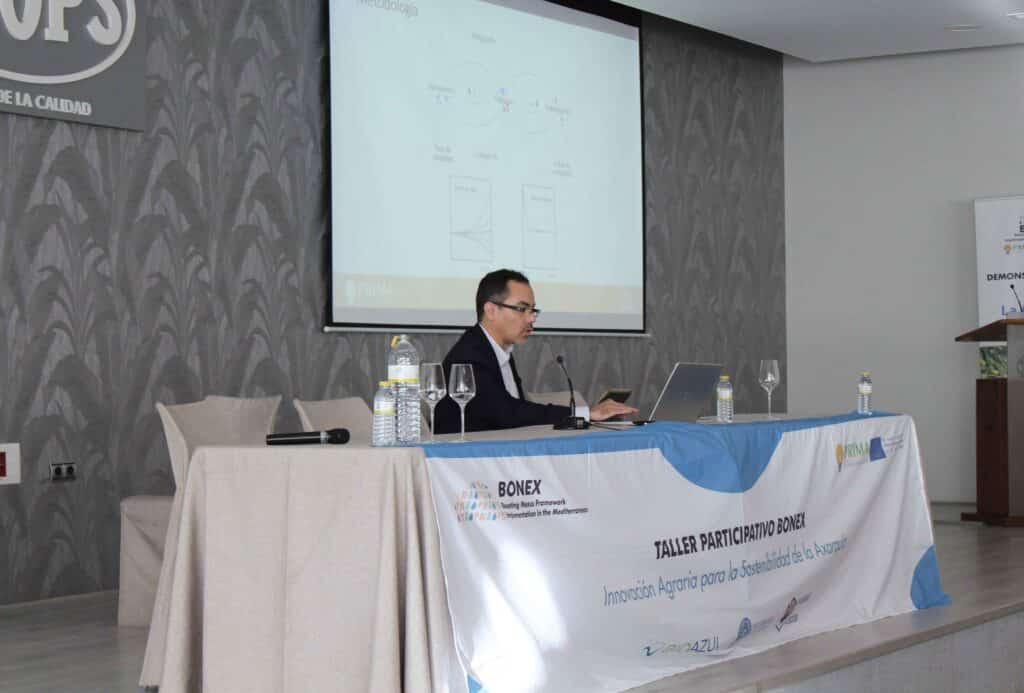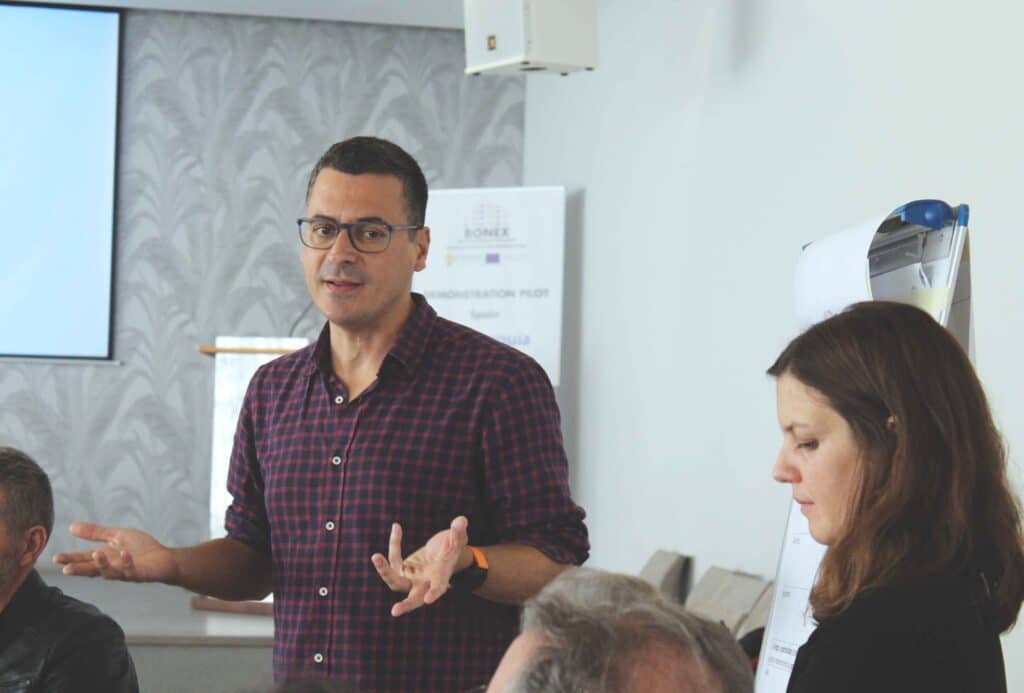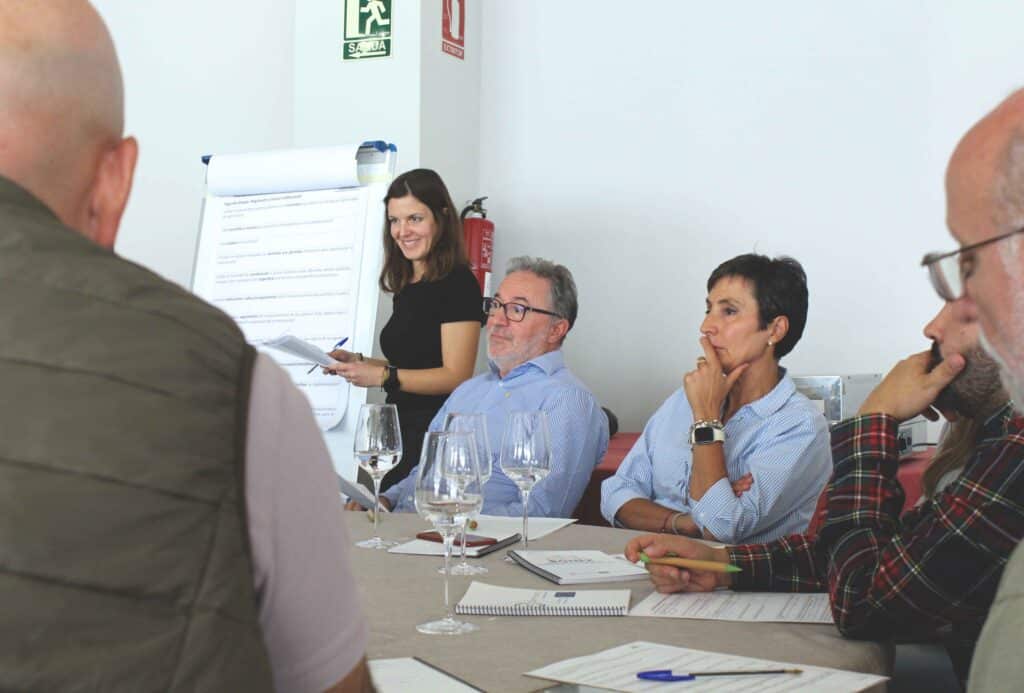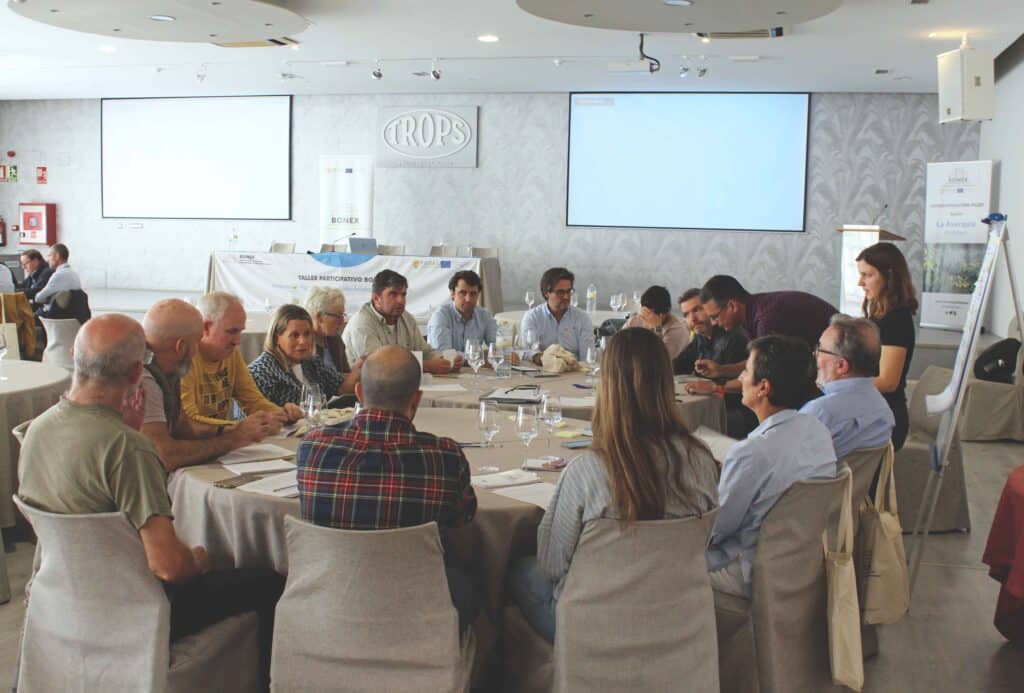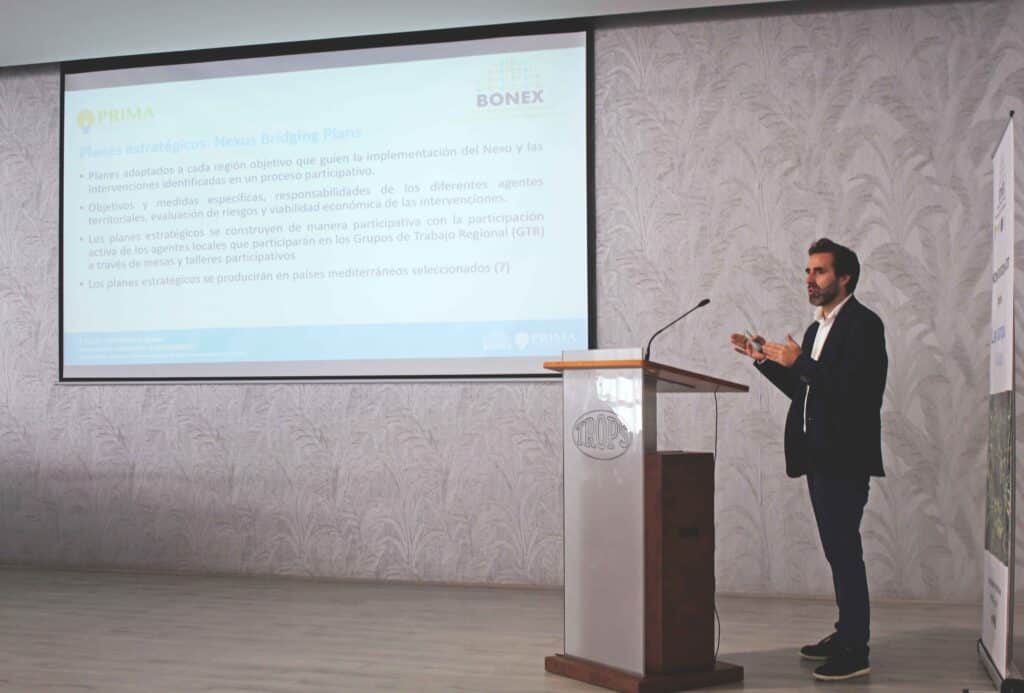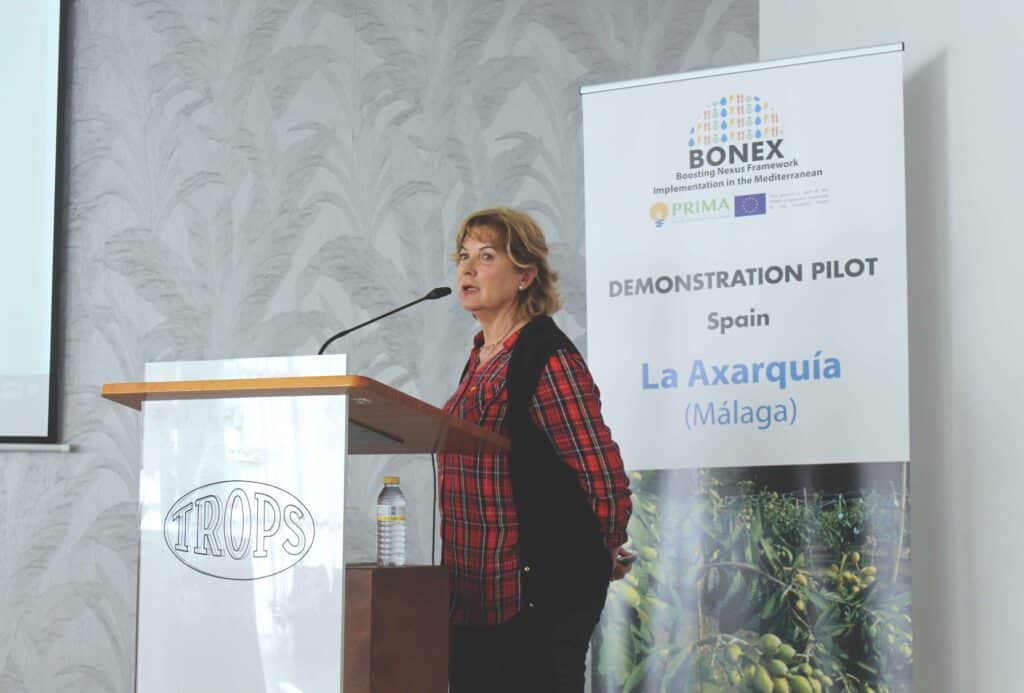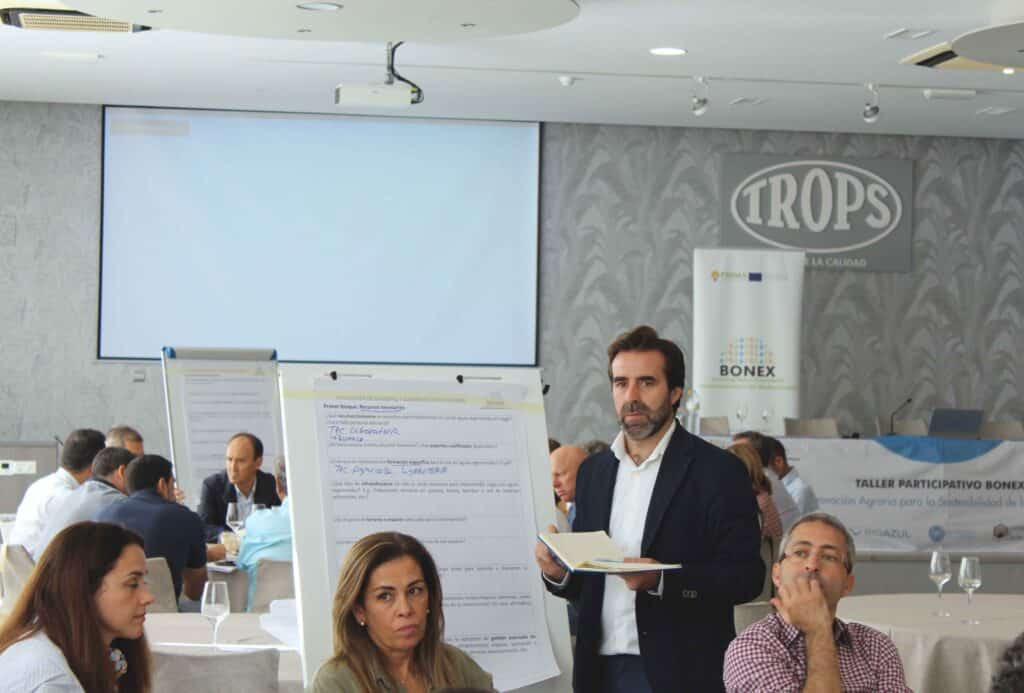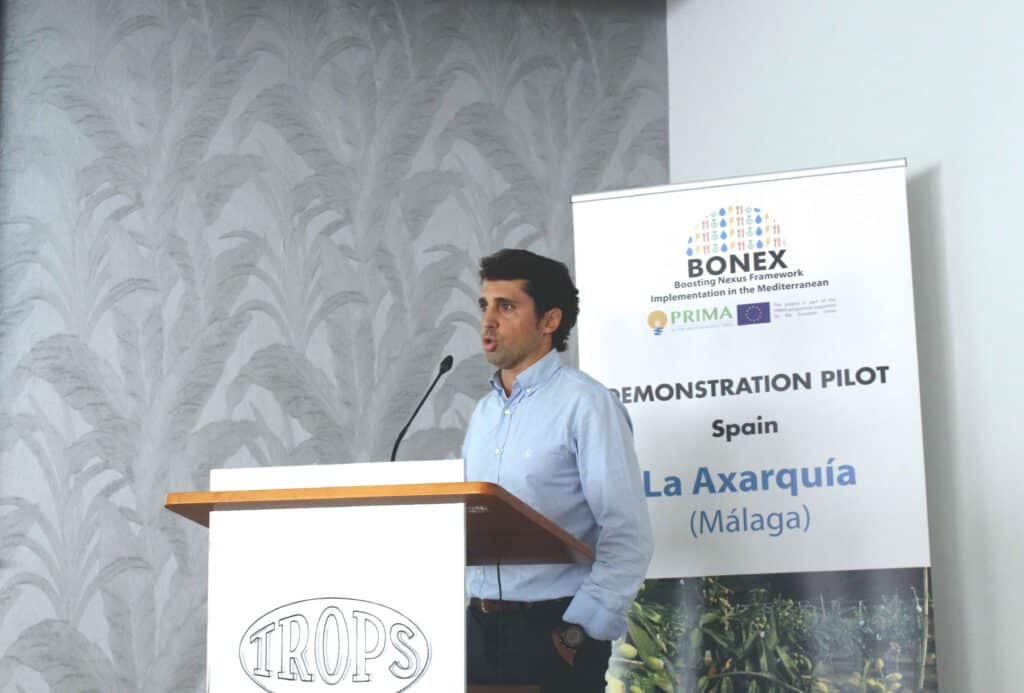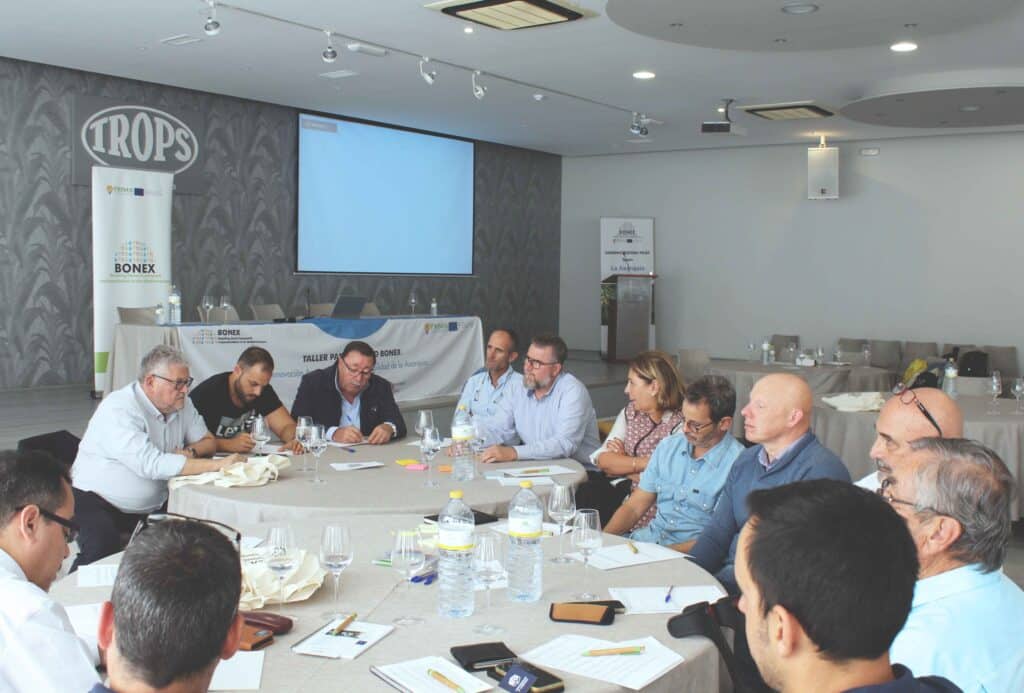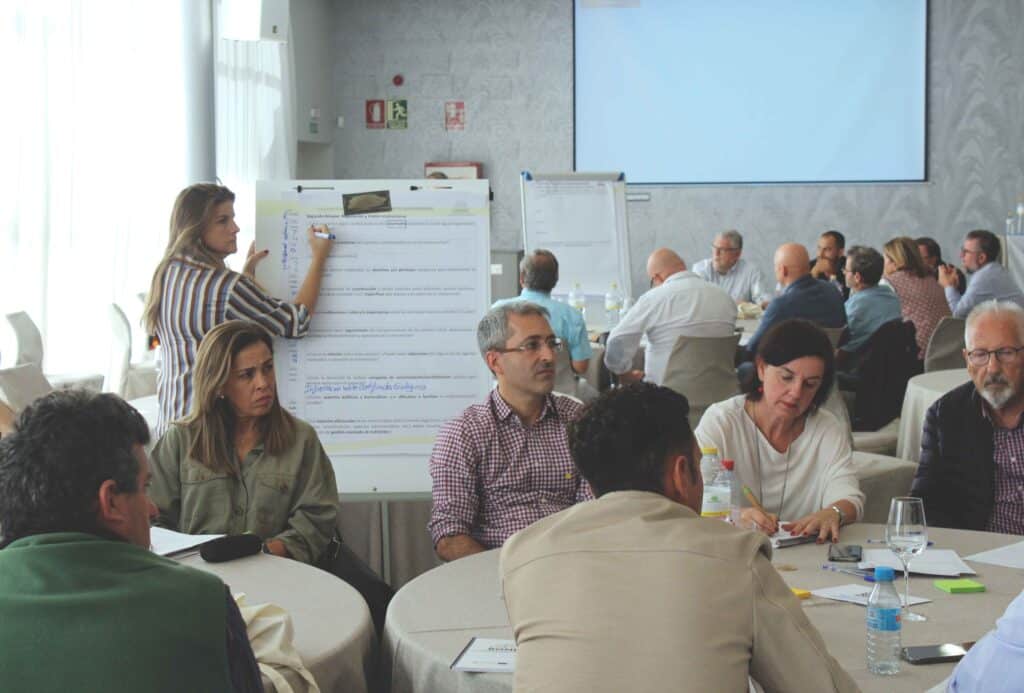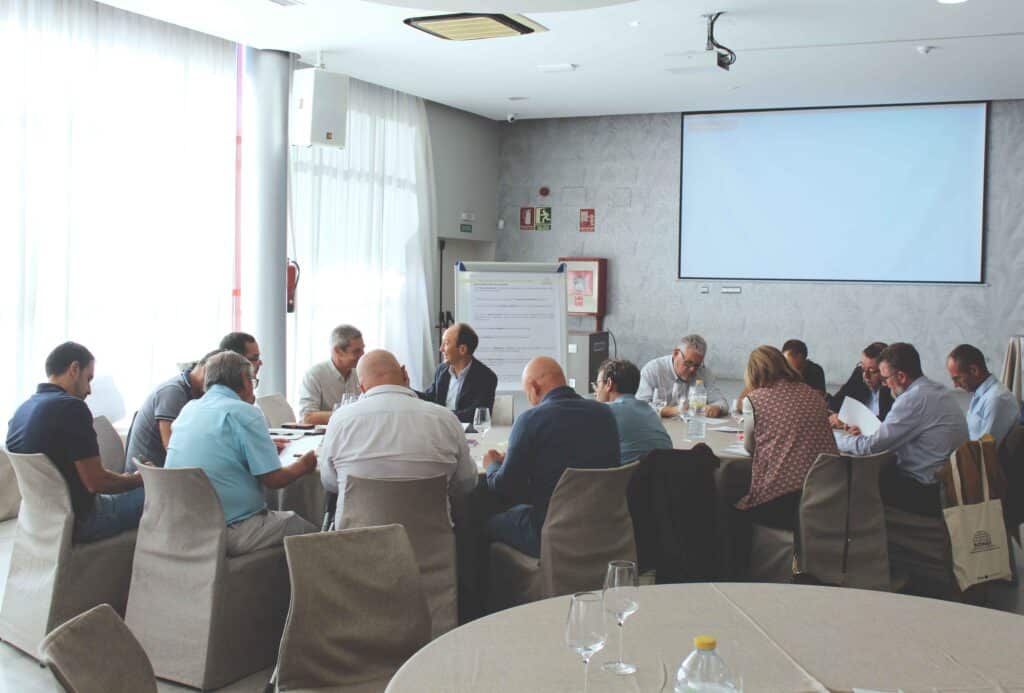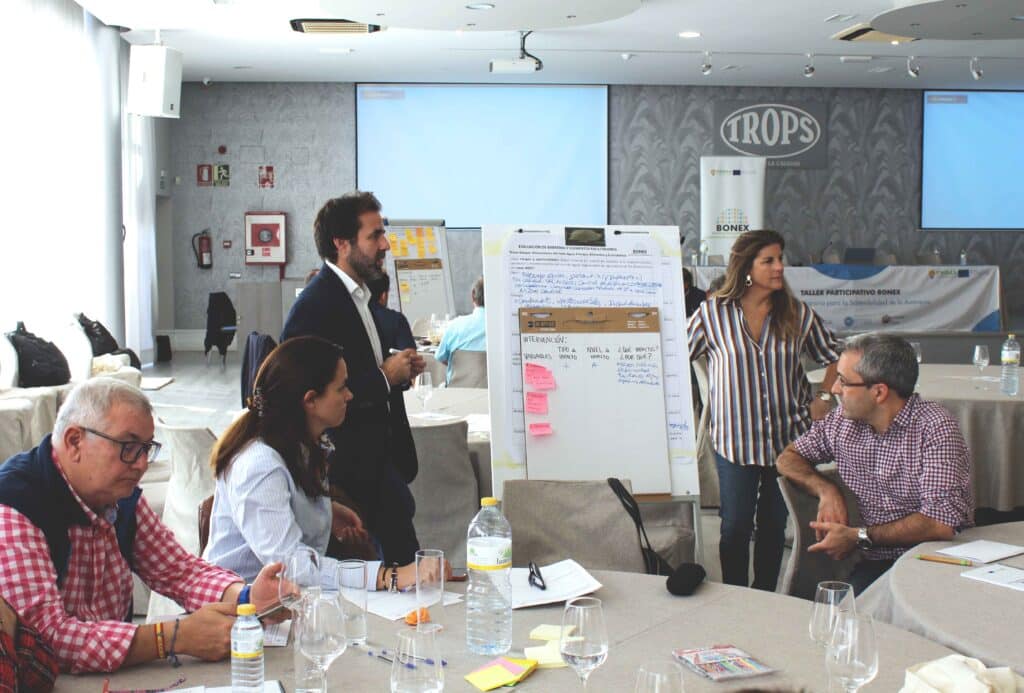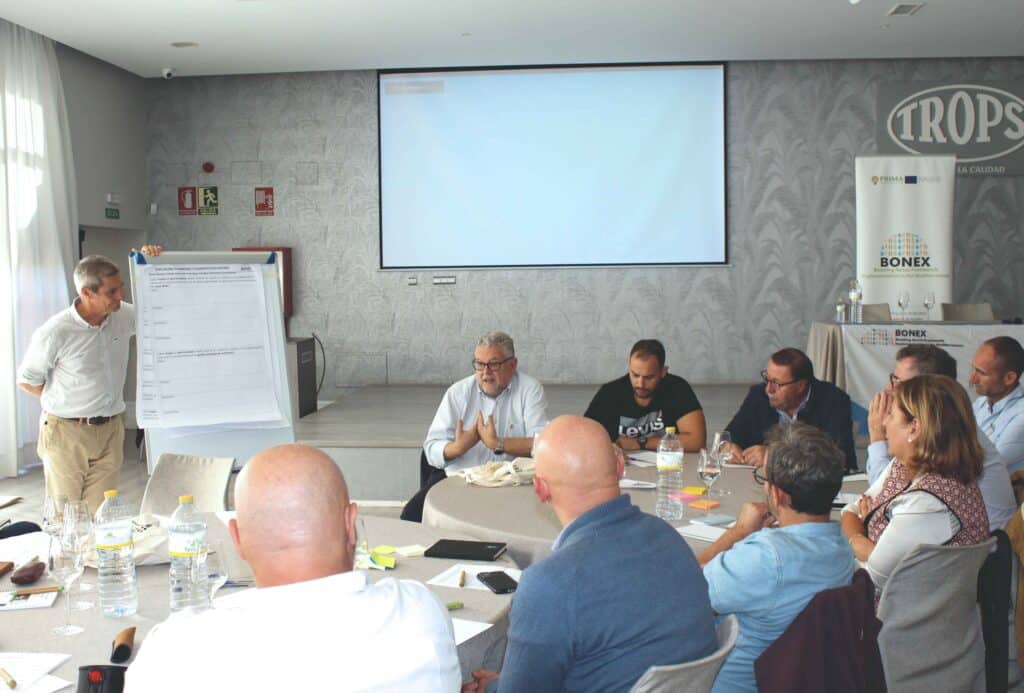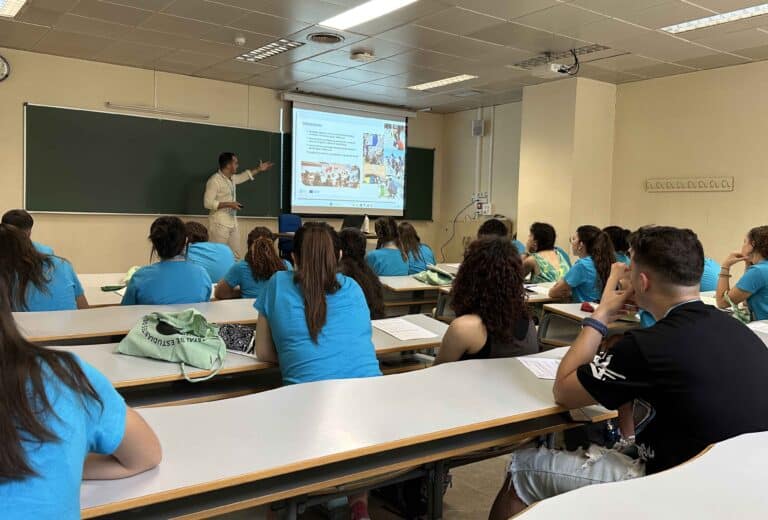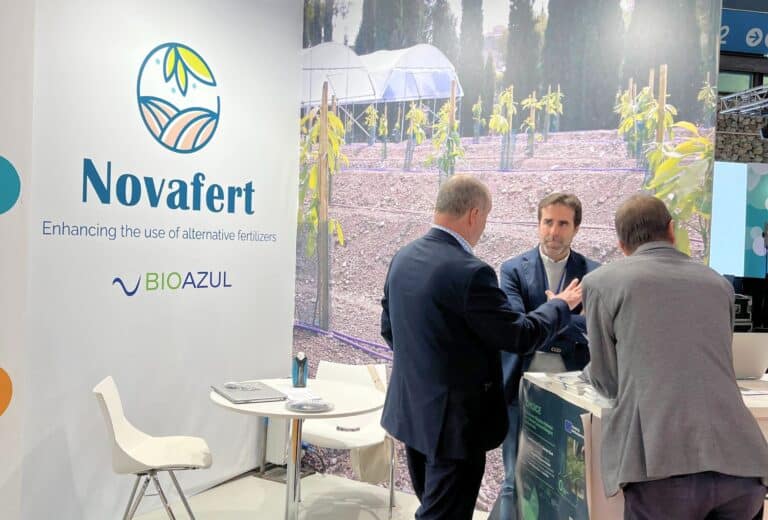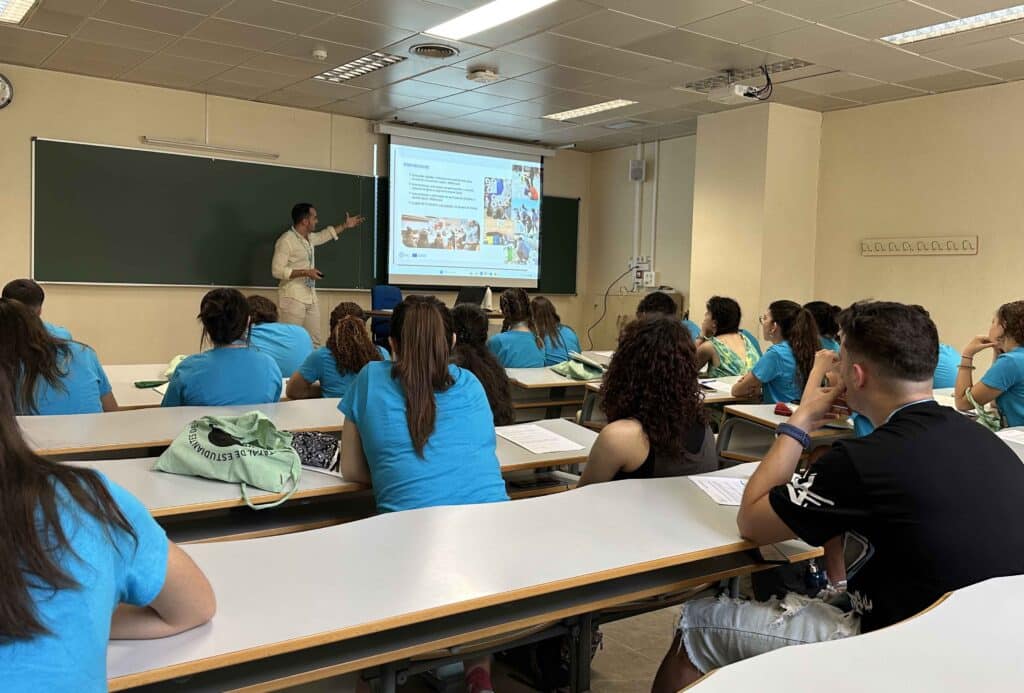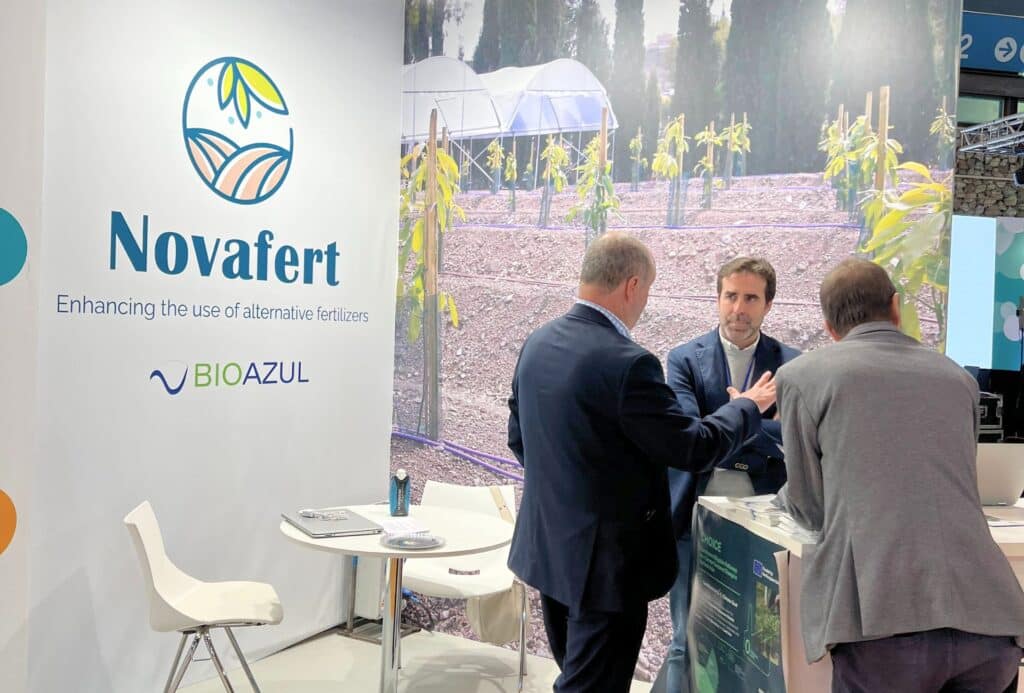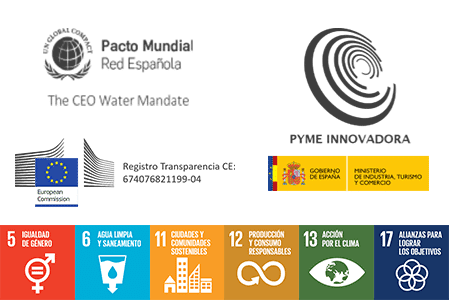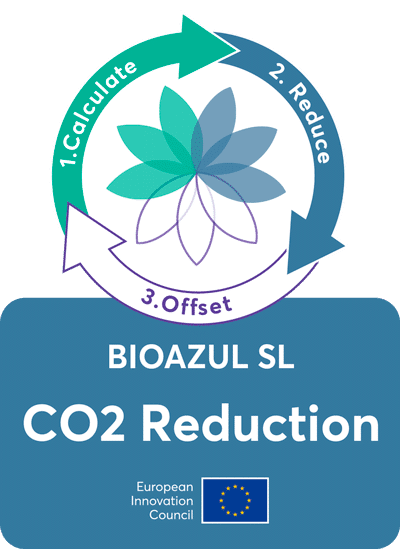BIOAZUL, University of Almería and University of Córdoba promote Agrarian Innovation and Sustainability in La Axarquía in the 2nd BONEX Workshop
From BIOAZUL, in collaboration with the University of Almería and the University of Córdoba, we successfully celebrated on November 14 the day “Agrarian Innovation for Sustainability: Opportunities, barriers and impacts in the use of regenerated water in Axarquía”. This was the second workshop organized in the Malaga region of Axarquía within the framework of our BONEX project co-financed by the PRIMA Foundation for cooperation with the Mediterranean and which aims to support the implementation of solutions that promote the water nexus, energy, food and ecosystems (WEFE).
The workshop was inaugurated by Jorge Martín, President of the Commonwealth of Municipalities Costa del Sol – Axarquía, Enrique Colilles, General Director of TROPS, and Antonia Lorenzo, CEO and Director of R&D&I at BIOAZUL, who agreed on the commitment of continue advancing in finding solutions to stop the drought and opt for alternative water resources for irrigating crops.
Researchers from the University of Córdoba, Julio Berbel and Antonio Hurtado, presented the results of the socioeconomic analysis of Axarquía. Through participatory activities, attendees identified key barriers and opportunities for the use of reclaimed water in agriculture as part of a methodological framework designed to implement the WEFE nexus in La Axarquía and 6 other target regions in the Mediterranean. Coordinated by researchers Enrica Garau and Antonio Castro from the University of Almería, an evaluation of the impacts on ecosystems was developed with the participation of attendees. This collaborative approach lays the foundation for the development of a strategic plan for the sustainable use of reclaimed water in the region.
Highlighting the continuous commitment to innovation, our colleague and BONEX coordinator, Rafael Casielles, presented the case study of irrigation with reclaimed water in the municipality of Algarrobo. This project is a continuation of our successful RICHWATER project and has become a “Living Lab” recognized by Water Europe. Remedios Romero from IHSM-La Mayora also explained her collaboration in the RICHWATER project, as well as in a project financed by the Provincial Council of Malaga, where studies were carried out on various crops to evaluate the effects of reclaimed water both on productivity as well as the quality of the crops and the soil. The collaboration with the IHSM-La Mayora Research Center continues through an operational group called Axarquía Sostenible. The idea is that the Axarquía Living Lab is a nerve center for innovation. Currently, we have 3 ongoing projects, in addition to those already mentioned, BONEX and Axarquía Sostenible, there is also another European project called P2Green.
Finally, the CEBAS-CSIC researchers, Francisco Pedrero and Juan José Alarcón, shared their extensive knowledge in the region of Murcia, which is a pioneer in the use of reclaiemd water. This included the development of practical guides for farmers, cementing the connection between research and sustainable agricultural practices.
The day was not only a presentation of projects, but also a space for exchanging experiences between experts, researchers, farmers and local actors. In this way, at BIOAZUL we reaffirm our commitment to sustainability and the practical implementation of innovative solutions in the agricultural field.
